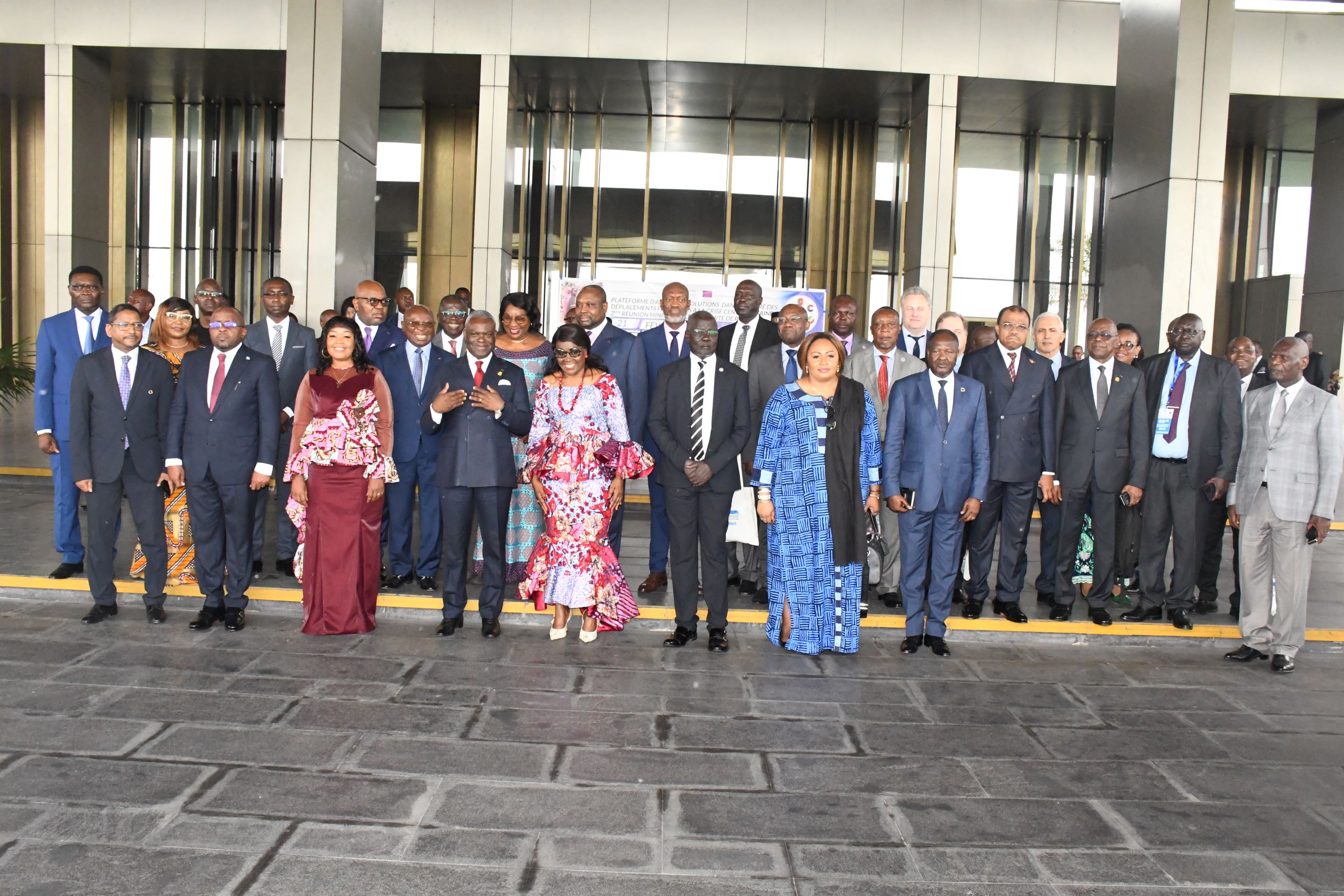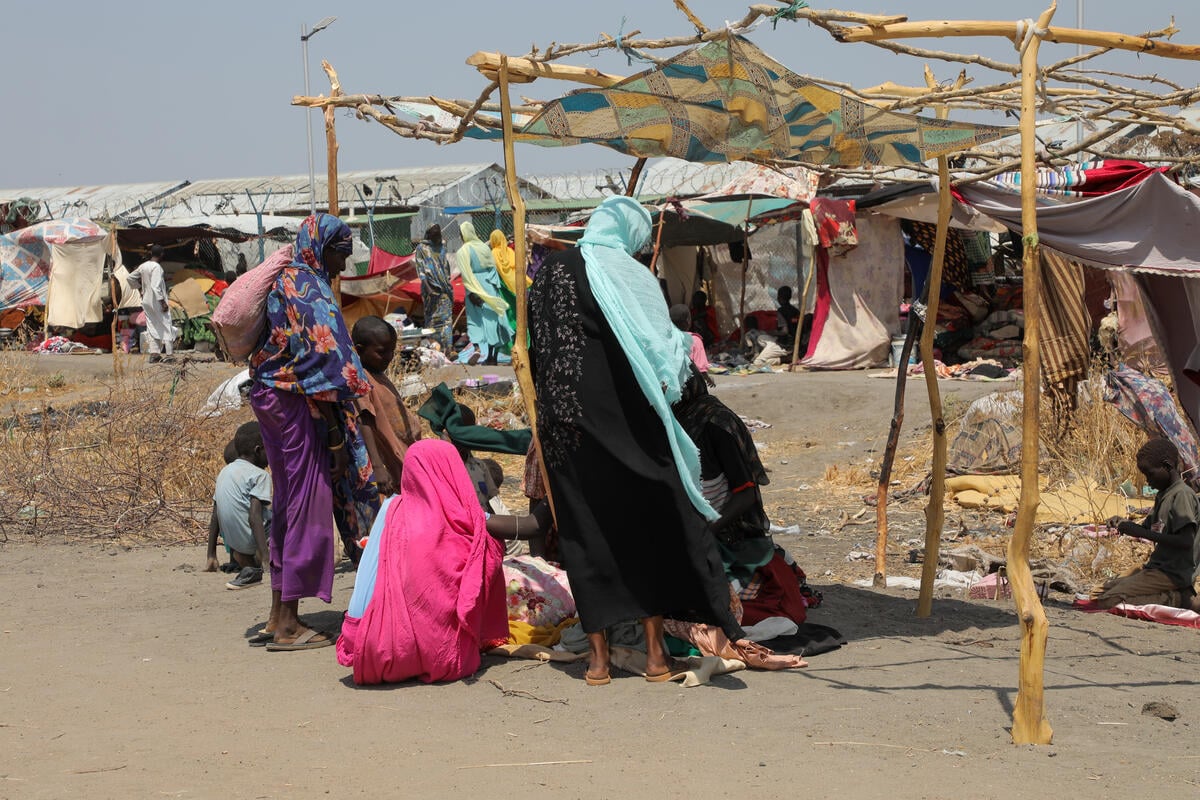Refugee camp in Malawi gets banking services
Refugee camp in Malawi gets banking services

Dzaleka, Malawi - Burundian refugee Emery Ndayizeye has dreamed of having a formal job for years. In 2010, after his father was killed and his brother disappeared, he fled to Malawi with his mother and his four sisters. Arriving in Dzaleka refugee camp at age 15, he attended Dzaleka secondary school while simultaneously trying to do several odd jobs around the camp to help support his family.
“I felt I had the responsibility of being the head of the family after we lost my father, “says Ndayizaye.
Now at age 23, he was hired to work as a messenger for New Finance Bank in Malawi that just opened up a branch in Dzaleka refugee camp last month.
New Finance Bank (NFB) , one of the country’s commercial banks opened the branch effectively becoming the first financial institution to establish a service centre in the camp since its inception in 1994.
At the opening ceremony, Minister of Home Affairs and Internal Security Honourable Cecilia Chazama said that having the bank in Dzaleka will lessen the lengthy process refugees go through to conduct banking transactions outside the camp.
“I am aware that refugees and asylum seekers had to go as far as Dowa, Mponela and Lilongwe to access banking facilities,” said Chazama. “The opening of NFB in Dzaleka will now ease pressure on camp management in issuing exit permits for refugees to enable their access to banking facilities.”

Monique Ekoko, UNHCR's Representative in Malawi thanked NFB for being the first ever bank to erect a service centre and operate in a refugee camp in Malawi.
Ekoko said residents of Dzaleka are hard working refugees who have over the years thrived in various business and entrepreneurial endeavours. She however, observed that the refugees have always been denied an opportunity to save their money in a reliable and safe manner because of the lack of access to banking facilities within the camp.
“There is no denying that refugees will benefit from these services just as any other individual would including the host communities,” said Ekoko. “Further, we look forward to additional banking services being offered by NFB to refugees at the Dzaleka branch in the near future.”
NFB Chief Executive Officer Zandile Shaba said her bank’s expansion to Dzaleka Refugee Camp is aimed at seeking financial inclusion for the Dzaleka community as well as enriching the lives of refugees in Malawi.
“This is indeed a departure from what banking institutions normally focus on and speaks to our mission of making people’s lives better,” said Shaba, "we are extremely proud of this initiative and I am sure that the people and community of Dzaleka are very pleased that they now have their own first ever financial institution fully operational in the camp.”
The new branch will offer refugees banking products and functions such as fixed deposits, savings and transactional accounts, access to an ATM, agency banking, money transfer and foreign exchange transactions.
Ndayizaye, who speaks English, French, Kiswahili, Kirundi, and Chichewa which he learnt in Malawi, says the job is very rewarding. He is grateful that he now can have a regular monthly income to support his mom and siblings.
“The opening of the NFB branch in Dzaleka brought a secure place for refugees to keep their money at reasonable prices,” says Ndayizaye.

Ramazan Masumbuko, a Congolese refugee residing in the camp also described the opening of the service centre as an opportunity for refugees to save their money. He commended New Finance Bank Malawi for engaging with the Ministry of Home Affairs and Internal Security alongside UNHCR Malawi to bring such a facility in the camp.
“As refugees we will no longer have problems whenever we want to access banking services as we now have a bank right on our door step,” Masumbuko said.
Located in the central region district of Dowa in Malawi some 35 kilometres from Lilongwe, Dzaleka refugee Camp is home to some 34,000 refugees and asylum seekers mainly from the Democratic Republic of Congo (DRC), Burundi, Rwanda, Ethiopia and Somalia among others.
Since 1994, it has seen an increase in entrepreneurship, which has given rise to successful micro-businesses ranging from farming to hairdressing, fashion design and profitable enterprises that include grocery stores, restaurants and the production of poultry.









